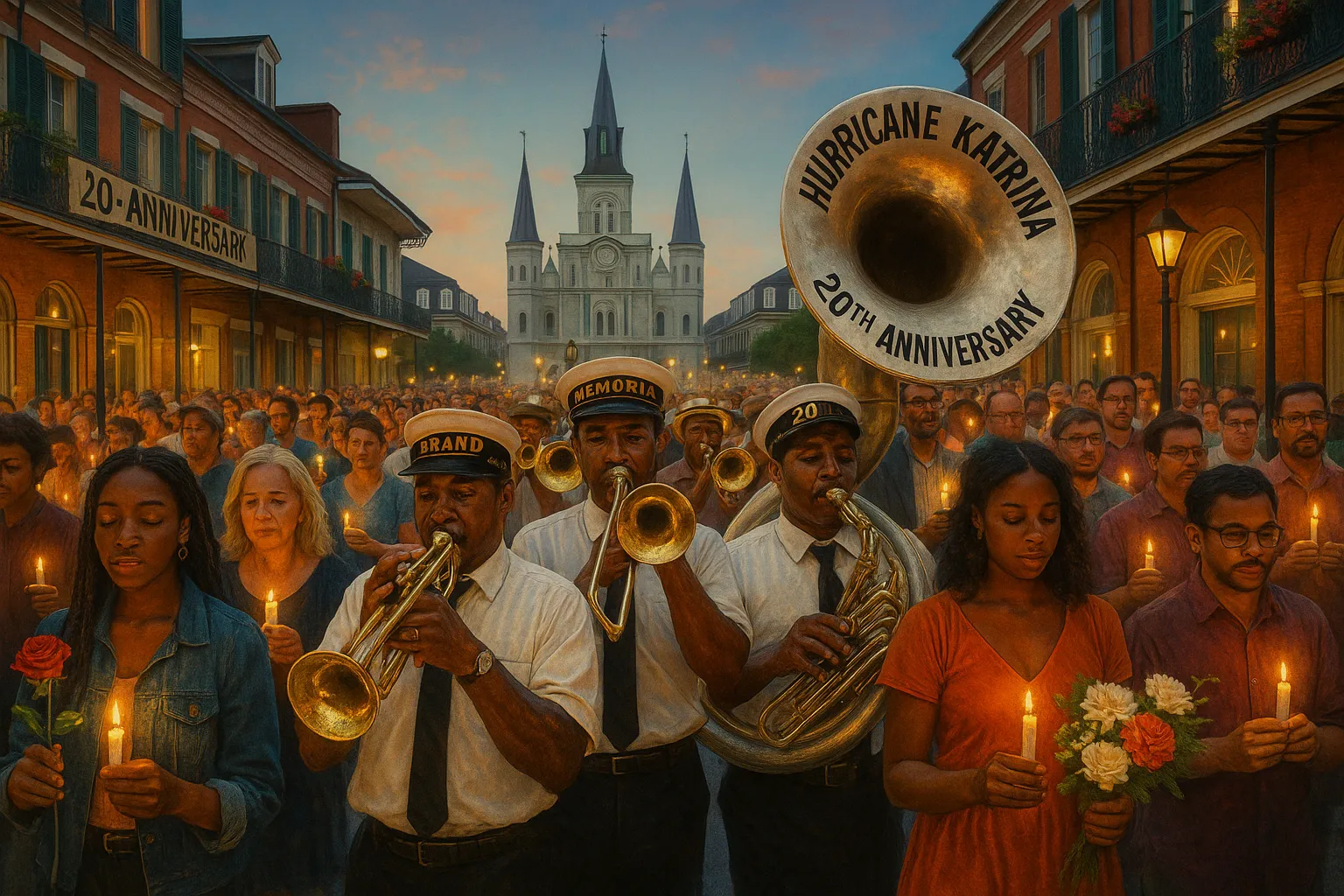NEW ORLEANS, Aug. 29, 2025 (AP)

New Orleans observed the 20th anniversary of Hurricane Katrina’s devastating landfall on Friday with memorial services, musical tributes and a traditional brass-band parade in the Lower Ninth Ward, where a levee breach caused catastrophic flooding.
When Katrina struck southeast Louisiana on Aug. 29, 2005, it was a Category 3 storm that led to more than $200 billion in damages (adjusted for inflation) and approximately 1,400 deaths across five states. Federal levee failures submerged 80 percent of New Orleans, forcing residents onto rooftops and into the Superdome for weeks.
Survivors and civic leaders gathered at the spot where the London Avenue Canal failed, joined by the Hip Hop Caucus and Katrina Commemoration Inc. The morning’s program opened with prayers and a reading of victims’ names. Local artists Dawn Richard and Mia X performed alongside a brass band second line that wound through the neighborhood, echoing the city’s jazz funeral tradition.
“The second line enables everyone to come together,” said the Rev. Lennox Yearwood, president of the Hip Hop Caucus. “Twenty years later, we stand in resilience and support one another”.
At 11:20 a.m., a citywide moment of silence was observed, followed by a wreath-laying ceremony at a memorial dedicated to unnamed storm victims. Exhibitions and documentary screenings were held throughout the day, highlighting the Gulf Coast’s recovery and ongoing challenges. On Saturday, museums will offer free admission and panels focusing on infrastructure, culture and climate vulnerability are scheduled across the city.
City officials are calling on the state legislature to recognize Aug. 29 as a Louisiana state holiday, noting that New Orleans’ pre-Katrina population of nearly 500,000 remains diminished at approximately 384,000 as many displaced residents have resettled elsewhere.
Organizers emphasized that Katrina’s legacy extends beyond New Orleans, serving as a national lesson in disaster preparedness, racial equity and the need for sustainable infrastructure. “This was not just a New Orleans event,” Yearwood added. “It was a national moment-it must inform how we address future crises.”
Categories
Autos and vehicles Beauty and fashion Business and finance Climate Entertainment Food and drink Games Health Hobbies and leisure Jobs and education Law and government Other Politics Science Shopping Sports Technology Travel and transportationRecent Posts
Tags